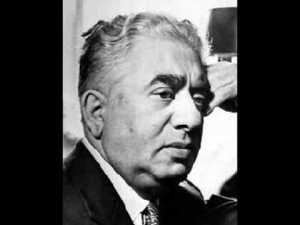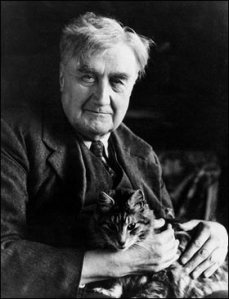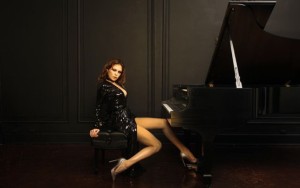A few days ago, I posted about Bruckner’s lyrical Seventh Symphony. Today, I’m happy to introduce another magisterial member of his symphonic repertoire- No. 4. The “Romantic” Symphony is long, drawn-out, and requires some patience to listen to. That isn’t to say that the patience doesn’t pay off- each movement’s climax is full of string-rich sound.
It is performed here by the Vienna Philharmonic and Claudio Abbado, who died recently after a long and fruitful life.
(Also, try and spot a female musician!)



